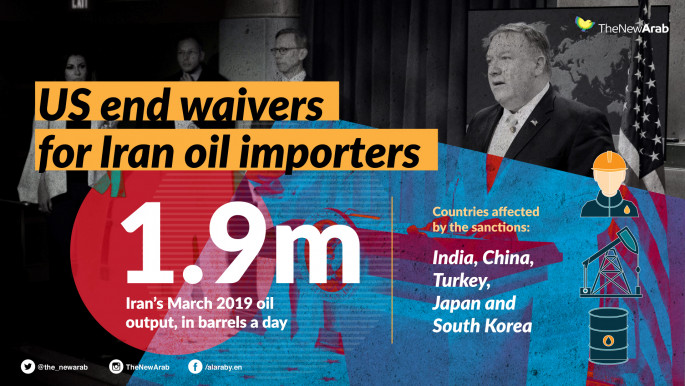UK warns US-Iran conflict could break out 'by accident'
Britain warned that conflict might break out "by accident" between the United States and Iran amid rising tensions, as European Union powers gathered to figure out ways to keep afloat the nuclear deal with the Islamic Republic.
The warning came after the United States announced the deployment of the USS Abraham Lincoln aircraft carrier strike group to the Persian Gulf to counter an alleged but still-unspecified threat from Iran, the latest in a long line of such deployments to the strategic region.
"We are very worried about the risk of a conflict happening by accident, with an escalation that is unintended really on either side but ends with some kind of conflict," British Foreign Secretary Jeremy Hunt told reporters in Brussels.
"What we need is a period of calm to make sure that everyone understands what the other side is thinking," Hunt said. He added that he would "be sharing those concerns" on Monday with European partners and visiting US Secretary of State Mike Pompeo.
The United States pulled out of the landmark 2015 nuclear accord a year ago, saying it does nothing to stop Iran developing missiles or destabilising the Middle East.
The Europeans insist the agreement was never meant to address those issues but has been effective in curbing Iran's nuclear ambitions.
Last month, Trump announced that Washington would no longer exempt any countries from US sanctions if they continue to buy Iranian oil, a decision that primarily affects the five remaining major importers: China and India and US treaty allies Japan, South Korea and Turkey.
 |
Tensions mounted further last week, when Iranian President Hassan Rouhani said that signatories to the deal now have 60 days to come up with a plan to shield his country from the sanctions imposed by President Donald Trump.
Hunt said that "if Iran becomes a nuclear power its neighbours are likely to want to become nuclear powers. This is already the most unstable region in the world. This would be a massive step in the wrong direction."
The meeting between Hunt, his counterparts from France and Germany, and EU foreign policy chief Federica Mogherini comes as the Europeans struggle to keep financial supply lines open to Iran to offset the impact of US sanctions on the Islamic Republic's shattered economy.
 |
Nobody wants Iran to get possession of an atomic bomb and that's been achieved so far - German Foreign Minister Heiko Maas |  |
"We in Europe agree that this treaty is necessary for our security," German Foreign Minister Heiko Maas said. "Nobody wants Iran to get possession of an atomic bomb and that's been achieved so far."
Mogherini said the talks will focus on "how to continue to best support the full implementation of the nuclear deal."
As the US sanctions bite, domestic pressure is increasing on Rouhani to demonstrate that Iran can still benefit from an agreement based on providing it with economic opportunities in exchange for limiting nuclear development.
Maas said the Europeans "are working on the assumption that Iran won't withdraw step by step from this treaty, but rather meet all of its commitments."
In attempt to keep Iran's economy afloat alone, the Europeans have set up a complicated barter-type system to skirt direct financial transactions with Iran and so evade possible US sanctions.
The workaround, dubbed INSTEX, is not yet operational as Iran has not completed its part of the scheme.
They have also introduced a "blocking statute" protecting European companies from the effects of US sanctions, but many international corporations do more business in the United States than in Iran and have already severed ties there rather than risk running afoul of Washington.
"We have already initiated concrete steps in recent months, especially as concerns the payment channel and INSTEX. Now this instrument needs to be further operationalised and used in order to continue implementing" the nuclear agreement, Maas said.
Follow us on Twitter: @The_NewArab



![Squad incumbent Summer Lee has won her district's Democratic primary. [Brooke Anderson/The New Arab]](/sites/default/files/styles/image_330x185/public/2024-04/413898031_1041031157158522_8195934720767720634_n%20%283%29.jpg?h=ff8c3fa3&itok=75Sx6fbL)